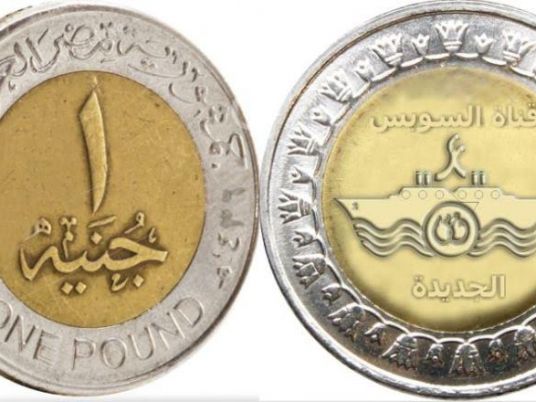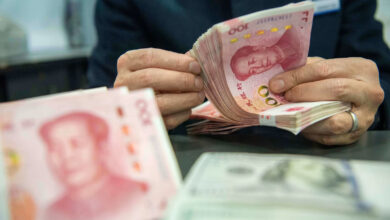
The dollar surged against the Egyptian pound on the black market on Wednesday, a day after the central bank raised a cap on foreign currency deposits, prompting currency-starved importers to source dollars from the parallel market.
Egypt's central bank said on Tuesday it would raise its cap on foreign currency deposits to US$250,000 a month specifically for imports of food, capital machinery, manufacturing components and medicines to help them settle their bills.
The cap raises the limit on dollar-denominated deposits from $50,000 a month that was imposed almost a year ago to crack down on a black market for dollars amid a foreign currency shortage, a move which hurt importers no longer able to pay for their goods.
"Speculators used the confusion caused by the central bank decision to push the pound lower … A huge wave of demand on dollars hit the market after raising the cap," one trader told Reuters.
"The market is also expecting the central bank to amend the official exchange rate of the pound," he said.
Four black market traders put the range of buying dollars on Wednesday between LE8.72-LE8.75 per dollar. That is more than a 10-piaster weakening of the pound since the central bank announcement.
Before the announcement on Tuesday, the black market rate for the dollar was around LE8.62. That is still far from the official rate of LE7.7301 per dollar.
"There is no supply and there is higher demand after they raised the caps. We sold at this (LE8.75) price and now we are unable to find dollars to buy," another trader said.
Egypt, which has been starved of foreign currency since a mass uprising in 2011 against autocrat Hosni Mubarak drove away tourists and foreign investors, has been resisting pressures to devalue the pound.
The central bank surprised markets when it strengthened the pound against the dollar on November 11 by 20 piasters and has bucked expectations by holding it steady ever since.
The country, which relies heavily on imports of essential goods, and had been rationing dollars through weekly auctions. Its foreign reserves have tumbled from $36 billion in 2011 to $16.445 billion as of the end of December.




